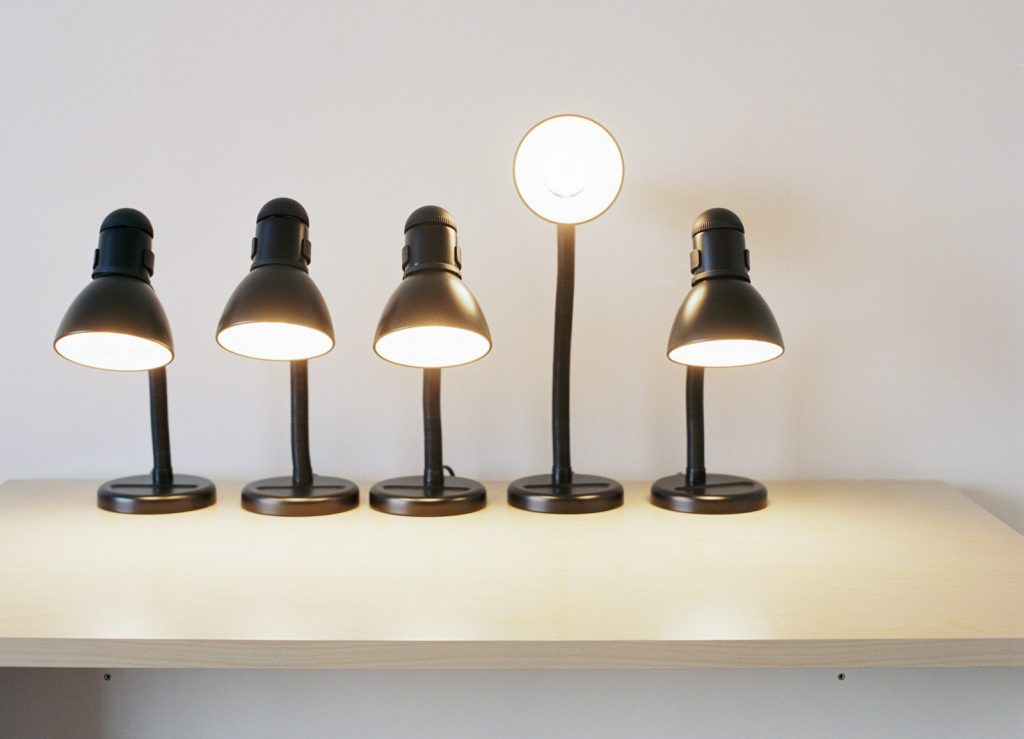Top 19 Questions You Should Ask As a Candidate at the End of Each Job Interview
- Interview
-
Jul 21
- Share post

Job interviews are stressful, but one should certainly expect the interviewer to end the interview with the sentence “Do you have questions for me?” Asking thoughtful questions not only sets you apart as a candidate but helps you determine if you would be happy to work in a particular company.
The act of asking questions alters the dynamics of the conversation as well as the employer’s opinion of you. Asking questions also gives you the opportunity to discover details that you would not otherwise reveal if you just walked out of the room at the end of the interview. You should prepare at least four questions in case you get answers to your two original questions during the interview.
So, the following questions can help you create a better picture of the position you are applying for, but also leave a lasting positive impression on the job interview.
#1 Have I Answered All Your Questions?
Before you start asking your questions, find out if there is anything your potential employers would like you to explain further. So you could say something like, “Yes, I have questions for you, but before I get started, I’m curious if I’ve answered all of your questions or not?” or “Would you like me to explain something in more detail or give you an example?”
This offer will serve a dual purpose: it will provide you the opportunity to evaluate your performance during the job interview but it will also be appreciated by them. For example, if they say “No, you answered all the questions well enough”, then it means that you are in a good position.
However, if the answer is something like “Actually, could you tell us something else about this and that?” or “Could you clarify what you meant when you said this or that?”, then this is your chance to modify your answer(s).

#2 Do I Need to Clarify/Further Explain Something From My Résumé?
This is somewhat more direct than the first question and offers more information from you, and also allows the employer to go back to your CV and perhaps notice something they didn’t notice on the first reading.
#3 Who Do You Think Would Be the Ideal Candidate for This Position and How Do I Fit In?
This question is a quick way to find out if your skills match what a particular company currently needs. If you do not fit the description, then you can leave the interview, instead of spending time-fighting for a position that does not suit you.
#4 Who Should Get a Report About My Work?
This is an important question so that you can understand the hierarchy within the company, i.e. if the people you asked about are actually people who are on the same team.
In case you have several bosses, you would surely like to meet them in advance. The same should be set in case you need to be superior to someone.

#5 How Did the Careers of Those Who Were In This Job Develop?
The answer to this question should give you information on whether this is a job that can be progressed on or is a dead end.
However, here you can count on the possibility for employers to be secretive, which again is not bad because you will understand what kind of company you are dealing with.
You→ Good Resume →Job
#6 Who Do You Consider Your Main Competitors?
This question is not for those with a ‘weak heart’ because you are asking a direct question to the company about what makes it better than the competition.
On the other hand, it shows that you have thought about how you can help the company achieve some of its bigger goals.

#7 Aside From the Basic Job Criteria, What Additional Skills Would Mean the Most to a Company for a Given Position?
Understanding what the company thinks is important to them will give you more insight into its work culture and values, so you can re-examine how well you fit in there.
#8 What’s the philosophy that runs your business?
This question provides a broader perspective on the company’s core, as well as on whether employee satisfaction is a priority.
#9 What Do You Like Most About Working for This Company?
In this way, you can connect with the manager who leads the conversation and create a ‘sense of camaraderie’ because interviewers, like everyone, like to talk about themselves, and especially about things they know well.
In addition, this question gives you the opportunity to gain insider insight into the best segments of work in a given company.

#10 Can You Give Me an Example of What It Is Like to Work With Superiors?
Information about how managers manage human resources is important because that way you can decide if someone is the type of boss who will allow you to use your potential and help the company progress.
#11 What’s Your Time Frame For Making a Decision?
This question in which you show you are eager to know when to expect a response lets them know that you are interested in the position and that you really want to hear their decision.
Influencing the company’s decision-making time should be your ultimate goal during the interview process once you determine if you are fit for the position and if you like the company’s culture. It will help you determine how and when to proceed and how long to wait before moving on in search of work.

#12 Do You Have a Dilemma About My Qualifications?
While this question may put you in a vulnerable position, it shows that you are confident enough to openly articulate your weaknesses and discuss them with your potential employer.
#13 Is There Any Other Way to Help You Make a Decision?
This simple question is polite to ask, and it, again, can give you peace of mind, that is, to be sure that you covered everything you could in the interview itself while showing enthusiasm and desire, but in a nice way.
Is Your Resume Not Getting Shortlisted?
#14 What Are the Challenges of the Position I’m Applying For?
If the interviewer answers “There are none”, you should be careful about the possibility of personal growth in that job position.
#15 if You Hire Me, What Would One Of My Regular Days at Work Look Like?
In this way, you express the desire for a job and you also get a better idea of what a given job would look like every day, so you can decide if you really want to get it.
An honest conversation about expectations and responsibilities in the workplace will ensure not only that this job is exactly what you want, but also the one for which you have the skills to progress.

#16 What Have Previous Employees Done to Succeed In This Position?
The main point of this question is for the respondent to find out how the company measures success.
#17 What Qualities Are Most Important for Good Business and Progress In the Company?
This question shows the interviewer that you care about your future in the company, and will also help you decide if a certain position is right for you.
When your employer tells you what he is asking from the candidate, imagine that person. If it looks like you, then this may be the right job for you.
#18 Is There Anyone Else I Need to Meet?
Finding out if a company wants you to meet with potential associates will give you an insight into how much the company values building synergies in the team.
In addition, if the interviewer says that there are four more interviews, you will have a much better feeling about how long the job interview will last.

#19 How Do You Help Your Team Develop Professionally?
This question shows that you are willing to work hard to ensure your growth along with the progress of the company.
This is especially important for hourly workers or workers to whom tips are included in monthly income (such as employees in casinos who offer features appealing to punters – for instance, the best casino free spins) because these companies usually have a higher turnover rate and are looking for people who think long-term. It also allows you to find out if the company is investing in nurturing its talents, as well as whether others will be as committed to your personal development as you are or not.
If you are asking creative questions at a job interview, it might pay off for you.
MBA Exams
Top Searches
Jee Mains
Jee Advance
STUDENTS
- For 9th class
- Skill Based Career Test |
- Services |
- Basic Plan |
- Advance Plan |
- Video Counselling Plan |
- Mentorship Plan
- For 10th class
- Stream Selector Test |
- Ideal Career Test |
- Services |
- Basic Plan |
- Advance Plan |
- Video Counselling Plan |
- Mentorship Plan
- For 11th class
- Ideal Career Test |
- Engineering Branch Selector |
- Humanities Career Selector |
- Commerce Career Selector |
- Services |
- Basic Plan |
- Advance Plan |
- Video Counselling Plan|
- Mentorship Plan
- For 12th class
- Ideal Career Test |
- Engineering Branch Selector |
- Humanities Career Selector |
- Commerce Career Selector |
- Services |
- Basic Plan |
- Advance Plan |
- Video Counselling Plan |
- Mentorship Plan
- For B.Com
- Commerce Career Selector |
- Ideal Career Test |
- Services |
- Basic Plan |
- Advance Plan |
- Video Counselling Plan |
- Mentorship Plan
- For B.Sc
- Ideal Career Test |
- Professional Skill Index Test |
- Services |
- Basic Plan |
- Advance Plan |
- Video Counselling Plan |
- Mentorship Plan
- For B.Tech
- Ideal Career Test |
- Professional Skill Index Test |
- Services |
- Basic Plan |
- Advance Plan |
- Video Counselling Plan |
- Mentorship Plan
- For B.A
- Ideal Career Test |
- Humanities Career Selector |
- Professional Skill Index Test |
- Services |
- Basic Plan |
- Advance Plan |
- Video Counselling Plan |
- Mentorship Plan
- For MBA
- Ideal Career Test |
- Professional Skill Index Test |
- Services |
- Basic Plan |
- Advance Plan |
- Video Counselling Plan |
- Mentorship Plan
- For Masters
- Professional Skill Index Test |
- Services |
- Basic Plan |
- Advance Plan |
- Video Counselling Plan |
- Mentorship Plan
STUDY ABROAD






Copyright © CareerGuide.com
Build Version:- 1.0.0.0
- X
- Telegram
- Tumblr
- VKontakte
- Copy link
- Share via...